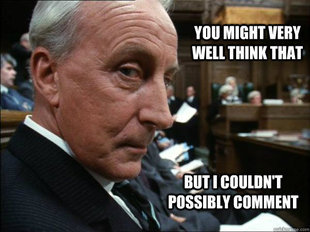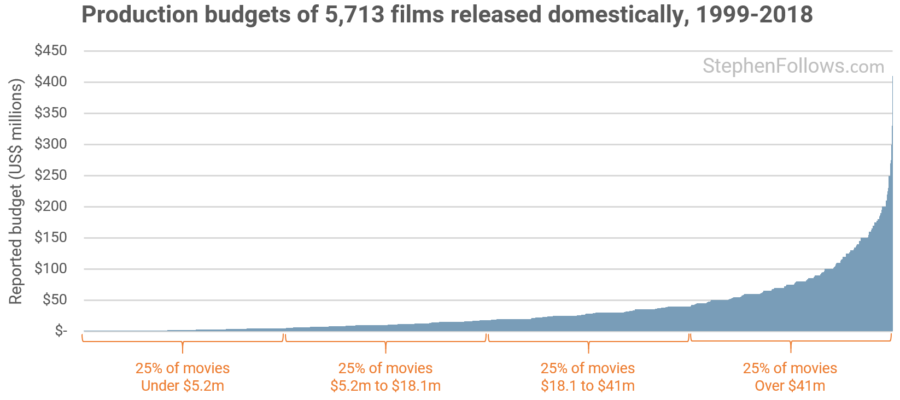My position isn't that movies should be evaluated as art primarily. I am happy to concede that most of what movies do is not even on the level of art let alone great art, and most of my movie enjoyment doesn't even depend upon whether the movie is delivering art to me at all. I'm only saying that movies can contain art -- in the director or in the script writer or in the actors or in any combination of those -- and that the art that is contained is not entirely mired with or dependent upon the other ways we measure the film's success. It's one thing to say that the art is partially mired with and/or dependent upon these non-artistic factors; it's another thing to say that it is necessarily so. So at the end of the day, my position is not as ambitious as you seem to think it is. I'm just trying to humbly carve out a little niche for art for art's sake within the sprawling, fabulously industrious world of Cinema.
And secondly, there was the tangential point that I believe an artist can be an artist defined as producing art, and the art he produces being good or great, without any fame, or with only a little bit of fame. I don't define art as dependent on fame. The art critic Robert Hughes in his series "Shock of the New" discussed one artist who was nearly homeless and lived at the Y for a while and produced a complex artwork made of intricately carved pieces all alone in his room and never received any notoriety, other than after his death when Hughes discovered it. Hughes considered it great art in and of itself, without any external measure like fame, or gallery showings, or money, or whatever. If one is going to accept a category called "art" then it stands to reason it would have its own criteria for definition without being dependent on externals. Your position seems to lead to the absurdity that the song a nobody writes by himself for which he never gets recognized and the tape is only accidentally discovered 50 years later, cannot possibly be a great artistic song because of those extraneous circumstances. Sure it could. It might be tragic and sad and pathetic, but that is irrelevant to whether it's possible for such a person to create a great song.
Similarly with music, most of the music I enjoy and cultivate is not great art. I can recognize that Beethoven or Mozart reflect great art, but I much prefer to listen to Santana or Sly and the Family Stone because I enjoy them more. But I'm not going to use that in some kind of argument against my conviction that Beethoven and Mozart produced great art.
And secondly, there was the tangential point that I believe an artist can be an artist defined as producing art, and the art he produces being good or great, without any fame, or with only a little bit of fame. I don't define art as dependent on fame. The art critic Robert Hughes in his series "Shock of the New" discussed one artist who was nearly homeless and lived at the Y for a while and produced a complex artwork made of intricately carved pieces all alone in his room and never received any notoriety, other than after his death when Hughes discovered it. Hughes considered it great art in and of itself, without any external measure like fame, or gallery showings, or money, or whatever. If one is going to accept a category called "art" then it stands to reason it would have its own criteria for definition without being dependent on externals. Your position seems to lead to the absurdity that the song a nobody writes by himself for which he never gets recognized and the tape is only accidentally discovered 50 years later, cannot possibly be a great artistic song because of those extraneous circumstances. Sure it could. It might be tragic and sad and pathetic, but that is irrelevant to whether it's possible for such a person to create a great song.
Similarly with music, most of the music I enjoy and cultivate is not great art. I can recognize that Beethoven or Mozart reflect great art, but I much prefer to listen to Santana or Sly and the Family Stone because I enjoy them more. But I'm not going to use that in some kind of argument against my conviction that Beethoven and Mozart produced great art.
Last edited by Flipper; 02-05-23 at 10:38 PM.
Reason: typos


